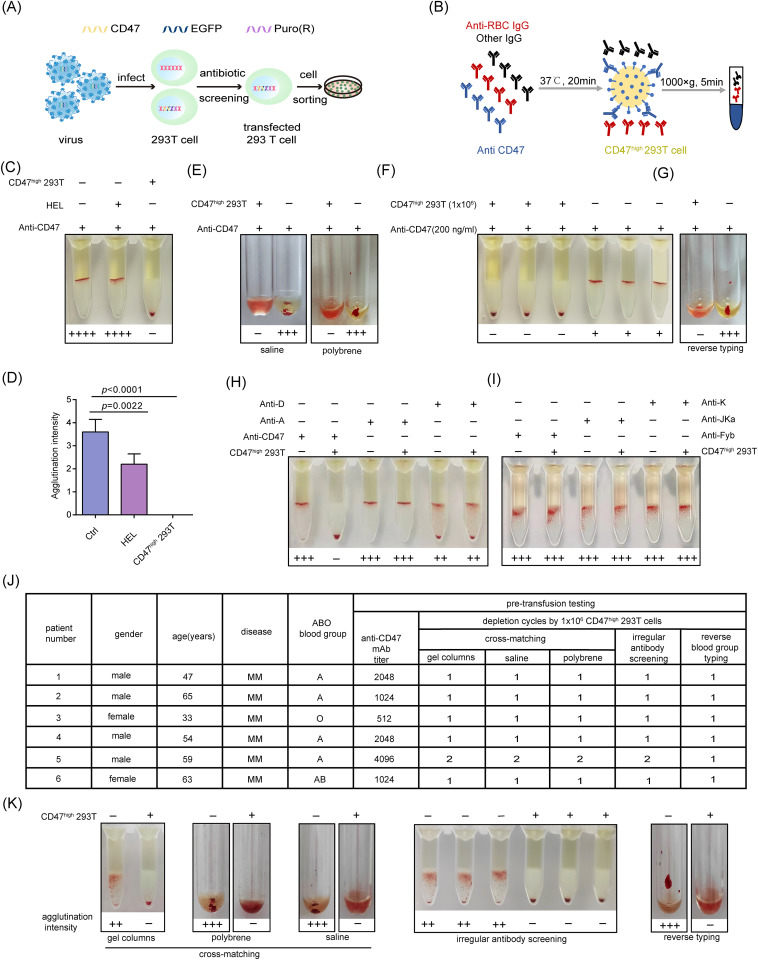
Depletion of anti-CD47mAb in plasma by genetically modified cells for pre-transfusion testing


Allogeneic red blood cell (RBC) transfusion is commonly performed in medical practice because of its efficacy and low-risk level. However, pre-transfusion tests are susceptible to monoclonal antibody (mAb) interference.1 Currently, mAb therapies are being developed to treat many diseases, such as cancer. However, certain mAbs, such as anti-CD38mAb and anti-CD47mAb, can bind to RBC membranes; this binding interferes with pre-transfusion tests.2 CD47 has gained considerable attention in recent years because of its potential as a therapeutic target for hematologic malignancies and solid tumors.3 The binding of anti-CD47mAb to RBCs may lead to false-positive results in pan-agglutination tests and cause delays and risks in establishing compatible RBCs for transfusion.
